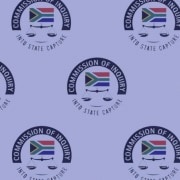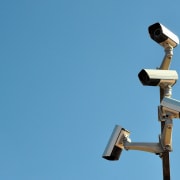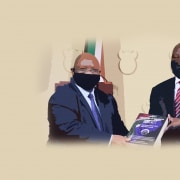|
Getting your Trinity Audio player ready...
|
The Judicial Commission of Inquiry into State Capture (Zondo commission) has completed its highly anticipated first report. Acting Chief Justice Raymond Zondo, the commission’s chairperson, delivered the 874-page document on Tuesday to President Cyril Ramaphosa, who swiftly made it publicly available for scrutiny.
The report provides an opportunity for civil society and the public to call for accountability and action when the president responds to it, says Corruption Watch. Granting the public simultaneous access to the findings and recommendations of the Zondo commission ensures transparency in the steps taken to identify priorities that will help to fix weakened institutions and corruption-enabling loopholes. This will strengthen systems and decision-making and prevent corruption, and state capture, in the future.
After four years of evidence about corruption on an unprecedented scale, and a protracted wait for definitive outcomes, the South African public has the right to be part of the process that monitors the implementation of Zondo’s recommendations. Not least are the whistle-blowers who put themselves at risk to expose corruption, and who deserve a better deal than they have received to date.
“While we welcome the commitment to transparency in making the report available to the public, and in sharing the timelines that come in to play, the real test will be in the commitment of the leadership to follow through on overturning corrupt processes, and ensuring that all those implicated are brought to book,” said Karam Singh, executive director of Corruption Watch.
“What it does mean is that we as civil society, along with members of the public, will be able to give our full attention to the findings of the report, while also keeping up the pressure for those in leadership to act in accordance with its recommendations. Less encouraging is the length of time that will no doubt ensue before any real action or consequences can be seen,” he continued.
The recommendation for an independent anti-corruption agency that has the mandate to deal with abuses of systems and laws is an important one that will go a long way towards speeding up the prosecutorial process. It is a subject already under discussion among civil society, government and business stakeholders, and as pointed out in the report, its structure and where it is located in relation to government needs careful consideration.
The first part of the report is unequivocal in its stance on the subversion of procurement processes under the Zuma administration, and the role of the Gupta family and other ANC-aligned business entities in orchestrating state capture. While acknowledging that malfunction in the procurement system existed prior to the Zuma presidency, the scale and manipulation reached during the era of state capture have prompted the recommendation for an independent agency against corruption in public procurement, one that will have oversight and powers to monitor and ensure enforcement.
Additional recommendations for a reform of the tender procurement system that underpinned so many aspects of state capture are aligned with the ongoing work of Corruption Watch on procurement, which extends to addressing the gaps in the current Public Procurement Bill, as well as a commitment to implementing OECD principles for integrity in public procurement.
The organisation has also previously advocated for deferred prosecution agreements, another of Zondo’s recommendations. In an op-ed published in mid-2021, Singh and co-authors Petrus Marais and Kaede Wildschut argued that a deferred prosecution agreements regime would offer not only relief for the current backlog in public prosecutions, but also a saving of state court resources and taxpayers’ money and certainty from a prosecuting perspective, among other benefits.
Of equal importance is the recommendation for greater protection of whistle-blowers, not only in terms of legislation, but also in the form of rewards for evidence that leads to the recovery of assets. Corruption Watch has itself called for consideration of compensation for whistle-blowers, along with recommendations for greater whistle-blower support that include an amendment of the Protected Disclosures Act, the proposed establishment of an agency to provide whistle-blowers with legal, financial and mental health support, and a push for criminal sanctions against those found guilty of intimidating whistle-blowers.
Also coming under scrutiny in this part of the report is the matter of the appointment processes of board members and executives at parastatal and state-owned enterprises (SOEs). Many of the failures of governance and financial malfeasance at multiple SOEs that came under the spotlight at the Zondo Commission can be attributed to poor or inappropriate leadership and political influence.
Corruption Watch has long been focused on the pivotal role that leadership appointments play in ensuring healthy, well-functioning systems and institutions, as evidenced in the organisation’s call for transparency and public participation in the appointments of leaders to Chapter 9 and 10 bodies, law enforcement agencies and SOEs. The report highlights the urgent need to protect the independence of institutions from political interference.
“It is fitting that one of the recommendations is that appointment processes are not the sole mandate of ministers, and that they should be apolitical, to which we would add that these processes should allow for public access or participation in the interests of transparency,” concluded Singh.
It is time for widespread engagement around the recommendations put forward by the report, and for the active involvement and participation of civil society in pushing for major reform of systems and processes that will prevent such massive corruption in the future.
For media queries, please contact:
Phemelo Khaas: 083 763 3472 phemelok@corruptionwatch.org.za








